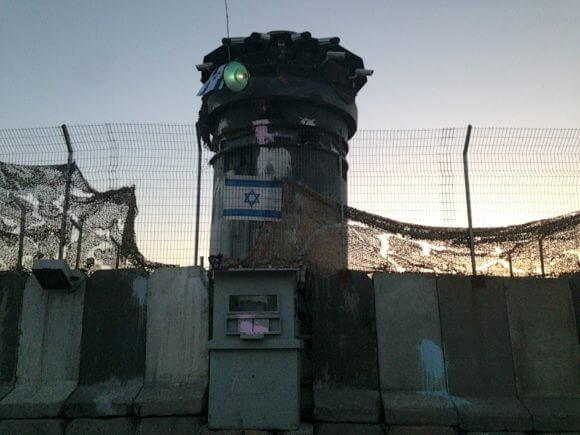Tonight marks the first night of Passover, and so I’d like to ask my Jews reading this to take a few minutes to ponder the meaning of this day, beyond a day of Matzoh and singing with family members around the dinner table. Passover celebrates the resistance and liberation of the Jewish people from the tyranny and slavery of the Pharaoh. It reminds us of the transformative power that we all wield when we confront oppression and injustice.
But we are not the only ones who have experienced, and still experience, oppression. We are not the only ones who bear the scars of, and who still bleed from, persecution and slavery. Any one of a thousand different peoples—each with their own unique memories of colonialism, imperialism, genocide, and racism—could sit at our seder table and would know the bitterness of the maror and the tears of the karpas. To me, Passover is a day in which we celebrate the universal history of resistance against injustice; it is a holiday that does not belong to just the Jewish people—it belongs to all people who share that history.
But as we all know, history rarely stays in the past. Even as we sit at our tables it continues to unfold around us, and so let us take this night to reflect on our place within it. Let us consider those from Palestine to Charlottesville, from Nigeria to Myanmar, from Syria to Tibet, from North Korea to Mexico; let us consider those who continue to suffer under the very yokes we celebrate having freed ourselves from, and let us ask ourselves, “are we really free?”
Make no mistake: the Pharaoh still lives. He lives in the bombs and in the chemicals that bury our Syrian brothers and sisters. He lives in a heartless Israeli government that chooses to celebrate this Passover by deporting thousands of refugees fleeing genocide and persecution. He lives in the walls that are built around our Palestinian and Latinx brothers and sisters in our name. He lives in the poisoned waters of Flint, Michigan, and in our overcrowded prisons. His ICE agents scour the country in search of undocumented families, and his policemen descend upon those of us who would fight his reign. He lives atop the mountains of wealth that overlook the parched deserts of poverty. In the hearts and minds of those who think hatred makes us great and in the guns that terrorize our schools.
He lives in our White House.
But so too does Moses still live. He lives in the women who march against patriarchy, and in the teachers and workers who demand a livable wage. In the hearts and minds of the DREAMers who dare to dream, and in the voices of our children who refuse to be silenced. In our gay, lesbian, bi, non-binary, and our trans brothers and sisters who have the incredible courage to love themselves for who they are. He lives within all of us who stand together against the rising tide of white supremacy in this country. In Palestine and in Standing Rock, in town halls across the country, on the streets of New York, DC, and around the world. Wherever the forces of resistance marshal against the forces of oppression the spirit of Moses lives on.
And so we must ask ourselves: are we free if the battle between Moses and the Pharaoh is still raging? Are we free if so many still weep? How can we call ourselves free if so many of our brothers and sisters still dream of the day when they too will be free?
Passover is not just a celebration of our past, it is also a call for us to act in our present. A call to Tikkun Olam. The world is still so very broken, and as Jews it is our duty to answer the call—to pick a side. For we more than anyone else know what happens to evil when good people do nothing.
So on this Passover let us talk and laugh and eat matzoh and sing, but let us also reaffirm our special commitment to the freedom of everyone and everywhere. Let us pledge to ourselves and to the world that this year we will do more to aid others in their struggles. And let us open our door not just to Elijah, but to all people of the world, in the hope that their actions and ours together might one day bring us all to our seder table, so that we may celebrate our shared history of resistance and liberation. For we are either all free, or none of us are.
Chag sameach Pesach, everyone.



What about the Egyptians, are they free, should they celebrate anything? Vow to do anything? How about the working class in the rust belt, small towns, rural America? Those who make up the majority of our soldiers and their families–you know, Pharaoh’s army? Those who never had bone spurs? Where do they fit in this story? Should they let their guns be confiscated?
What does John Bolton do on Passover–or Easter?
Nobody’s free until everybody’s free. Fannie Lou Hamer
Read more at: https://www.brainyquote.com/quotes/fannie_lou_hamer_124505
Hamas is a declared ‘terrorist group’. The Jews in Egypt were slaves.
I think this comparison is a bit forced.
@Jackdaw.
“Hamas is a declared ‘terrorist group’. The Jews in Egypt were slaves”
Hamas is not a declared terrorist group by various countries in the world including major world powers:
https://en.wikipedia.org/wiki/International_positions_on_the_nature_of_Hamas
As for Jews being slaves well I think a significant proportion of colonist Jews in Palestine and their supporters in Florida and Brooklyn are indeed slaves to their own fables and mythologies:
https://www.haaretz.com/jewish/were-jews-ever-really-slaves-in-egypt-1.5208519
BTW JDaw you must really be enjoying the latest Zio slaughterfest in Gaza . Bet you wish you had a “ringside” seat.